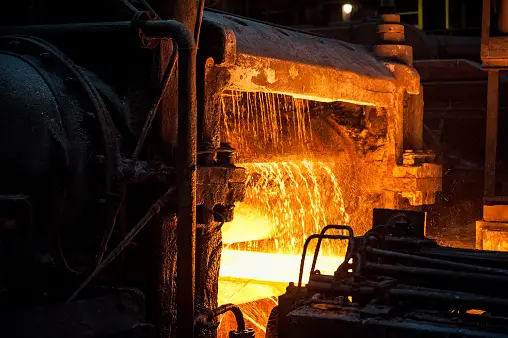
Sheet Metal Flattening An Introduction and Comprehensive Guide
2024-04-30 15:06:53
Sheet metal flattening is a crucial process in the metalworking industry. It involves the transformation of curved, bent, or distorted sheet metal into a flat, usable form. This process is essential for various applications, including manufacturing, construction, and automotive industries, where precise dimensions and smooth surfaces are paramount.

The Process of Sheet Metal Flattening
The sheet metal flattening process typically begins with the inspection of the metal sheet to identify any bends, curves, or distortions. Depending on the severity of the distortion, the sheet metal may be passed through a series of rollers or presses to gradually flatten it. Advanced techniques, such as hydraulic presses or CNC-controlled flattening machines, can provide more precise and consistent results.
During the flattening process, it's crucial to maintain uniform pressure across the entire sheet to avoid creating new distortions or imperfections. The operator must carefully monitor the progress and make adjustments to the equipment to ensure the desired flatness is achieved.
Applications of Sheet Metal Flattening
Sheet metal flattening finds numerous applications across various industries. In the manufacturing sector, flattened sheet metal is used to create parts and components for machinery, equipment, and appliances. The automotive industry relies on flattened sheet metal for body panels, chassis components, and interior parts.
Construction projects also utilize flattened sheet metal for roofing, siding, and other exterior applications. Additionally, flattened sheet metal is used in the creation of artistic metalwork, such as sculptures and furniture, where precise dimensions and smooth surfaces are essential.
Advantages of Sheet Metal Flattening
The advantages of sheet metal flattening are numerous. Firstly, it allows for more efficient and cost-effective use of metal sheets. By flattening distorted sheets, manufacturers can utilize a larger portion of the material, reducing waste and improving yield.
Secondly, flattened sheet metal is easier to handle and work with. Its smooth, flat surface facilitates precise cutting, drilling, and forming operations, resulting in higher-quality finished products.
Lastly, sheet metal flattening improves the appearance and durability of metal products. The elimination of distortions and imperfections results in a smoother, more visually appealing surface. Additionally, the flatness of the metal sheet improves its structural integrity, enhancing the overall durability and performance of the product.

Sheet metal flattening is a vital process in the metalworking industry, providing numerous benefits for manufacturers and end-users. Its ability to transform distorted sheet metal into a flat, usable form enables efficient material utilization, precise processing, and improved product quality. As the demand for precision metalwork continues to grow, the importance of sheet metal flattening will undoubtedly increase.
Search
Categories
Recent News
Achieving Precision with a Four-Roll or Four-High Leveling Machine Design
2025-10-22 12:00:00
The Importance of Internal Stress Released in Metal Components
2025-10-18 12:00:00
How a Decoiler Straightener Feeder Integrates into Automated Systems
2025-10-15 12:00:00
Comparing Manual Leveling Machine and Hydraulic Leveling Machine Options
2025-10-14 12:00:00
The Process of Sheet Metal Flattening for Superior Surface Quality
2025-10-13 12:00:00
Key Considerations for Selecting a CNC Leveling Machine
2025-10-10 12:00:00
Understanding the Role of a Straightening Machine in Metal Processing
2025-10-11 12:00:00
How a Roller Leveler Improves Material Flatness in Production Lines
2025-10-09 14:07:26
High Precision CNC Leveling Machine: The Backbone of Modern Metal Production
2025-09-29 12:00:00
Metal Straightener Machine: Versatile Solution for Metal Flattening Needs
2025-09-12 12:00:00
Metal Straightener Machine: Boost Productivity in Sheet Metal Manufacturing
2025-09-05 12:00:00
Straightening Machine Manufacturer: Advanced Technology for Flawless Leveling
2025-08-12 12:00:00
Straightening Machine Manufacturer: Precision Solutions for Metal Forming
2025-08-08 12:00:00
The Role of Sheet Metal Flattening Machine in Modern Manufacturing
2025-07-30 12:00:00
How Sheet Metal Flattening Machines Revolutionize the Metalworking Industry
2025-07-22 12:00:00
Enhance Production Efficiency with Sheet Metal Flattening Machine
2025-07-18 12:00:00
What is a Sheet Metal Flattening Machine?
2025-07-14 12:00:00
Bauschinger Effect Exporter: Understanding Its Role in Sheet Metal Leveling
2025-07-01 12:00:00
What Is High Quality Improve Flatness?
2025-06-17 12:00:00
Exploring the Top Chinese Roller Leveler Merchants for High-Quality Machines
2025-06-03 12:00:00
Boost Metal Processing Efficiency with the NCLT50-1000 3-in-1 Feeder Machine
2025-06-18 17:38:33
Sheet Metal Flattening An Introduction and Comprehensive Guide
2024-04-30 15:06:53
Revolutionizing Construction with Leveling Machine Technology
2024-03-29 09:40:20
The Art and Science Testament of Sheet Metal Flattening
2024-03-24 17:28:10
How to Operate a Leveling Machine: A Comprehensive Guide
2024-02-23 10:27:07
The Impact of Leveling Machines on Efficiency in Construction
2024-01-22 16:34:02
Increase productivity with advanced Roller Leveler Machine
2023-11-29 11:38:58
Understand the functions of Roller Leveler Machine
2023-11-29 11:28:38
Customers come to the company to choose precision leveling machines
2023-11-02 16:41:29
What factors will affect the price of the leveling machine
2023-07-16 15:40:24


















































